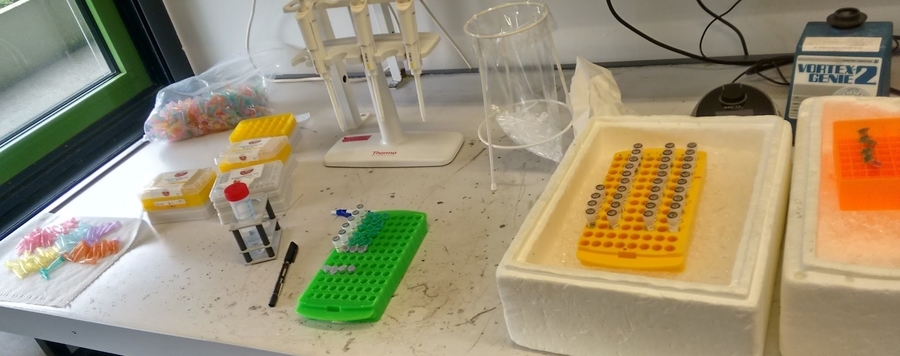
Assessing the influence of sample tagging and library preparation on DNA metabarcoding
Metabarcoding is increasingly used to assess species diversity by high-throughput sequencing where millions of sequences can be generated in parallel and multiple samples can be analysed in one sequencing run. Generating amplified fragments with a unique sequence identifier ('tag') for each sample is crucial, as it allows assigning sequences to the original samples. The tagging through so-called fusion primers is a fast and cheap alternative to commercially produced ligation-based kits. However, little is known about potential bias and inconsistencies introduced by the long nucleotide tail attached to those primers, which could lead to deficient reports of community composition in metabarcoding studies. We therefore tested the consistency and taxa detection efficiency of fusion primers in (1) a one-step and (2) two-step PCR protocol as well as (3) a commercially manufactured Illumina kit using mock communities of known composition. The Illumina kit delivered the most consistent results and detected the highest number of taxa. However, success of the two-step PCR approach was only marginally lower compared to the kit with the additional advantage of a much more competitive price per library. While most taxa were also detected with the one-step PCR approach, the consistency between replicates including read abundance was substantially lower. Our results highlight that method choice depends on the precision needed for analysis as well as on economic considerations and recommend the Illumina kit to obtain most accurate results and the two-step PCR approach as a much cheaper yet very robust alternative.






